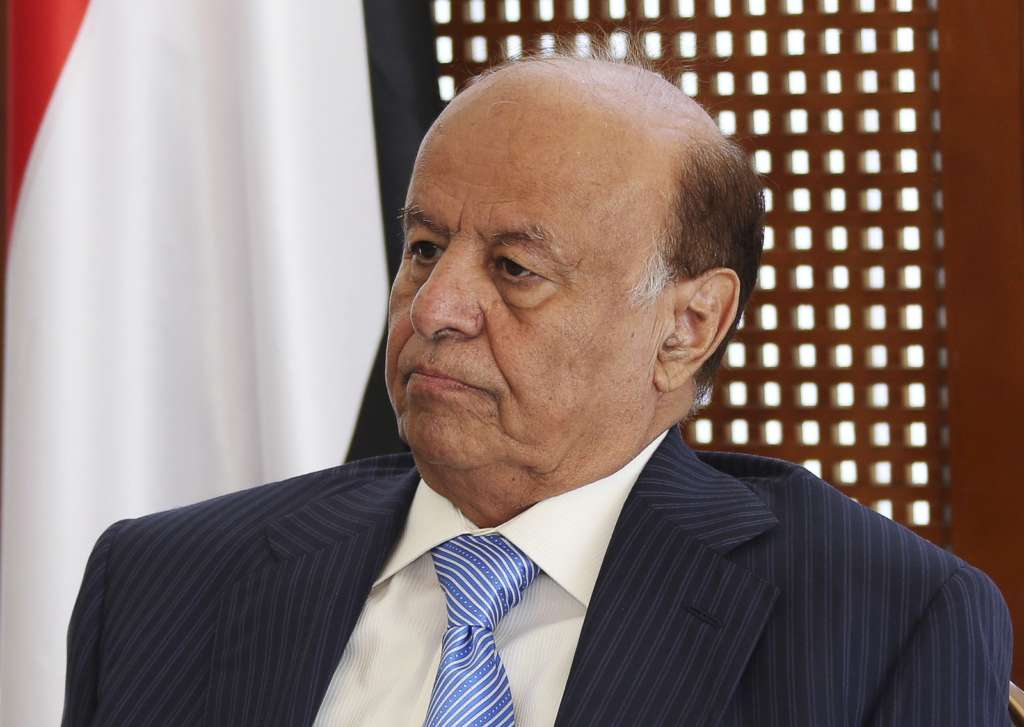Aden- Yemeni President Abdrabbuh Mansour Hadi dismissed on Thursday three governors of the liberated provinces for supporting the secession of the southern part of the country in the framework of organizing the situation in liberated areas, state television reported.
Hadi issued a decree dismissing the governors of Hadramaut and Shabwa, located in the southeastern part of the country as well as the governor of the remote island of Socotra in the Indian Ocean.
The three conservatives are members of the Southern Transitional Council, which was formed last April by Aden’s governor, also dismissed, aiming at fomenting secession in the southern part of the country and acting against President Hadi.
Hadi assigned Major General Saleh Qaid al-Zindani as Deputy Chief of General Staff and Major General Nasser Abdullah Nasser Rweis as Head of the Operations Authority of the Armed Forces.
The official Saba news agency said that a presidential decree was issued on Wednesday to appoint Maj. Gen. Faraj Salemin al-Bahssani as governor of Hadramout, replacing Brigadier General Ahmed Said Ben Brik, while Bahssani retained the command of the second military zone in Sayoun city based in the capital of Hadramaut Valley.
The order also assigned Ali bin Rashid al-Harthi, governor of Shabwa, replacing Ahmed Lamels. Ahmed Abdullah Ali al-Soctori was also appointed as governor of Socotra, replacing Salam al-Soctori.
Hadi’s new decisions have provoked a storm of reactions, most of which were supportive, given the significant progress made by the National Army forces on the front lines and the continued tightening of the grip on the coup in Sanaa.
Head of Masarat Center for Strategy and Media Bassem al-Shaabi told Asharq Al-Awsat that President Hadis’ decisions are appropriate and right.
“We hope they contribute to enhancing the situation in these provinces,” Shaabi said. He stressed the importance of not being complacent with the issue of ending the coup and its negative effects.
Some observers and political analysts described the decisions as “historic,” and were made to arrange liberated provinces in Yemen in light of the presence of pro-Houthi and Saleh cells that work on destabilizing the situation in areas under the control of the legitimate government.
